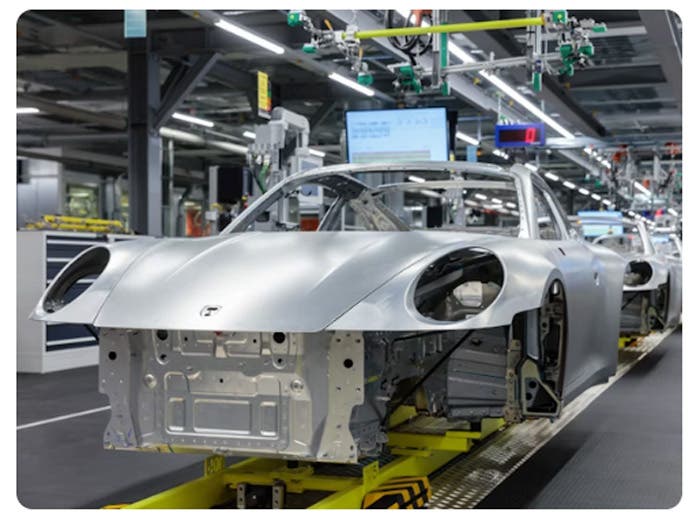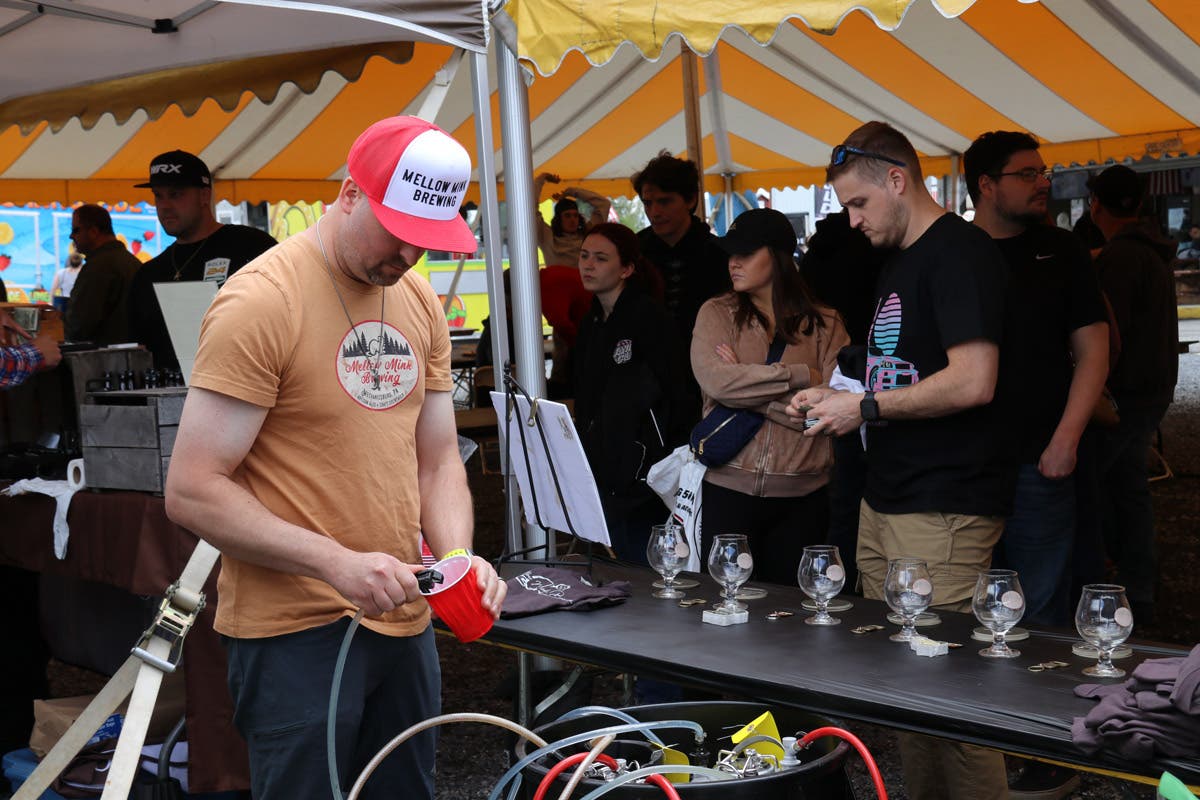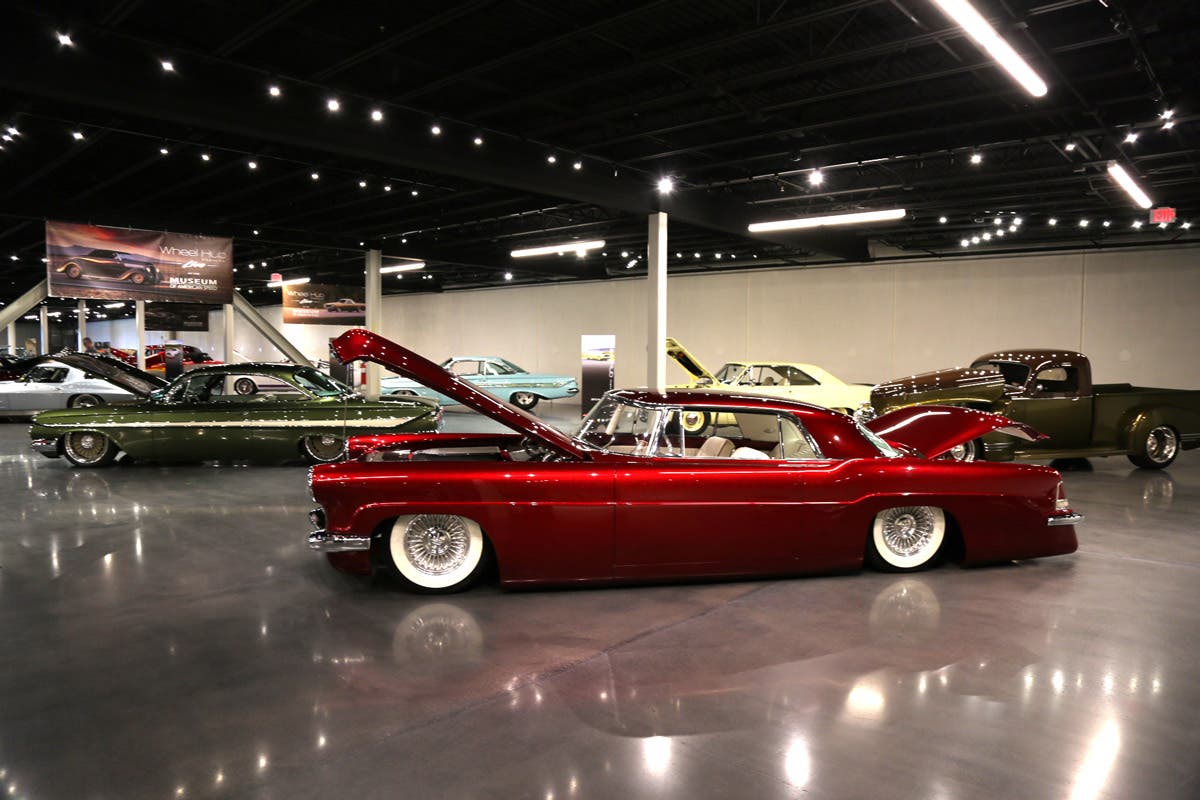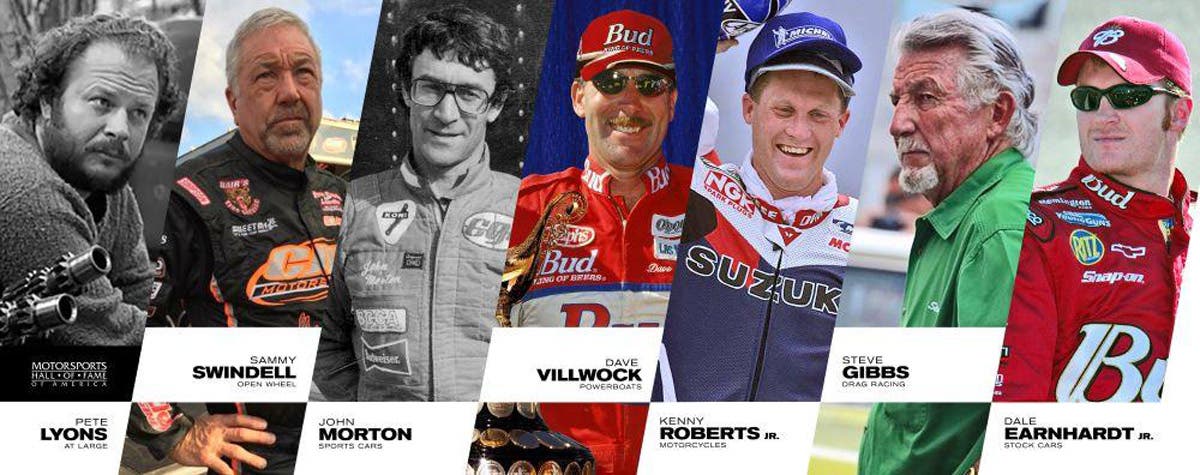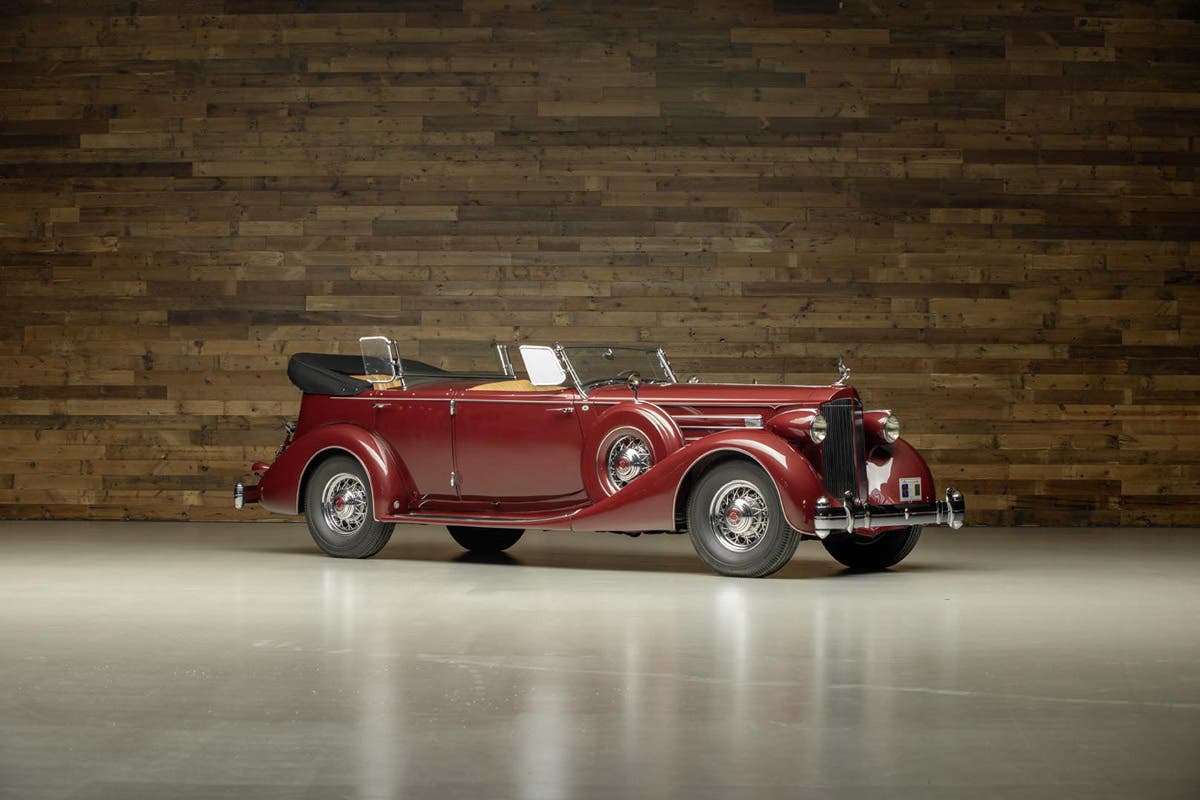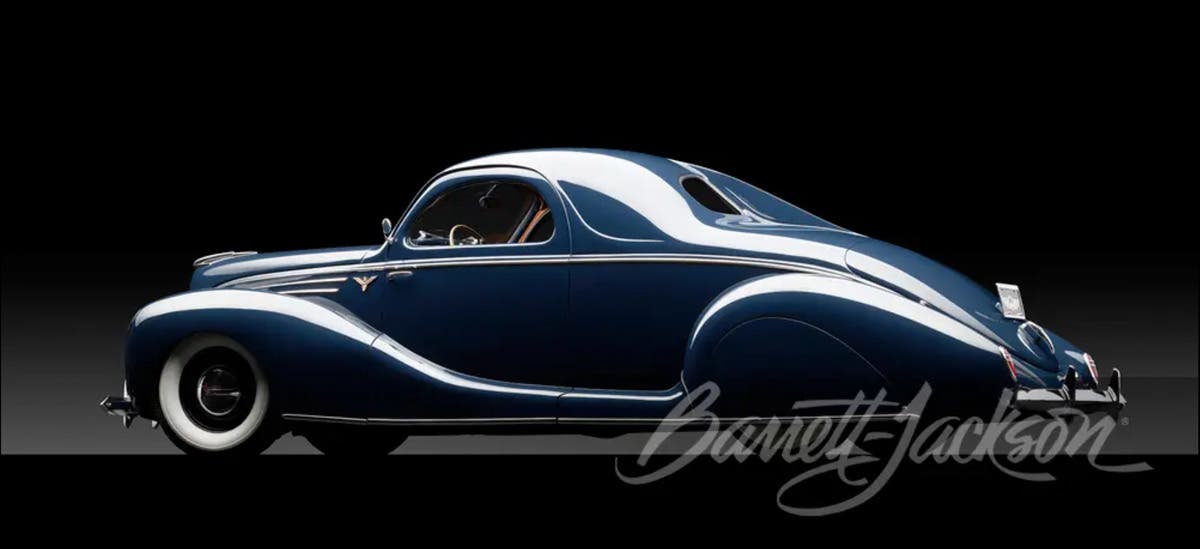Wisconsin collector license plate bill would expand usage to modified vehicles
By Angelo Van Bogart While many states are moving forward with legislative bills that allow single-license-plate use, year-of-manufacture license plates and special new license plates for car collectors, some Wisconsin…
By Angelo Van Bogart
While many states are moving forward with legislative bills that allow single-license-plate use, year-of-manufacture license plates and special new license plates for car collectors, some Wisconsin hobbyists are revisiting the existing collector license plate statute. Senate bill SB-110, a.k.a “The Old Car Preservation Act,” would allow many additional vintage vehicles in Wisconsin — those mildly modified vehicles that still retain an unaltered-from-stock body — to be registered with collector license plate, rather than the alternative hobbyist or military vehicle license plate. A companion bill will soon be introduced in the Wisconsin House of Representatives.
The current law for collector license plates in Wisconsin states a vintage vehicle is eligible for collector license plates if it is “at least 20 years old” and “is being preserved because of its historical interest.” It further states, “Vehicles altered or modified from the original manufacturer’s specifications do not qualify for collector license plates but may be eligible for hobbyist license plates.” Certain original or modified military vehicles do currently qualify for collector licensing status, and owners of Wisconsin collector-registered vehicles must follow the law, which states a collector vehicle cannot be operated in January and the owner must “own or lease at least one other motor vehicle for regular transportation with current, valid registration in Wisconsin.” The Wisconsin collector registration — along with the hobbyist and military vehicle registration — does not expire for as long as the owner possesses the vehicle, and the registration fee is twice that of regular annual registration.
The recently introduced bill SB-110, authored by Sen. Glenn Grothman, would change the definition of a collector vehicle. Of the bill’s 15 points, 12 points address registering military vehicles with collector plates, rather than the more restrictive military license plates currently available. Those three points that do address vintage cars would now allow slightly modified vehicles registration with collector plates.
“Most of the [vintage] cars have something non-original on them either from necessity or personal taste,” said Tom Zat, owner of Alfa Heaven and a military vehicle collector who helped organize and present the bill. “I don’t care if it’s fuzzy dice, a radio or brake changes — there are people have who have been rejected for collector plates because of safety upgrades.”
Mitch Warren, Wisconsin DMV Bureau of Vehicle Services Director, confirmed that the rules behind collector plates were more regularly addressed in recent years.
“We tightened up the way we enforce it in 2009 when we started to require photos, and that was in response to comments from the hobby and law enforcement that we were putting cars on the road that shouldn’t be,” Warren said. “I think we had push back on that. I think that was because there wasn’t a lot of knowledge of what the law is.”
According to Zat, there have been owners of cars with Wisconsin collector plates that have had their car’s collector plate application rejected or their existing collector plates removed because the Wisconsin Department of Transportation or law enforcement found at least one non-original item on the car, such as a modern stereo, upgraded brakes or custom wheels.
“If you take our collector community and what we have been doing for years and years, there are very few [cars] that can meet the exact words of the [collector plate] law. We are changing the laws so we are not making criminals anymore. [Right now] you are a criminal for putting a [modern] stereo or seat belts in your car.”
There are currently provisions for registering modified vehicles in Wisconsin with a hobbyist license plate. According to Zat, hobbyist status does not protect a Wisconsin-registered vintage vehicle as well as the collector plate. Therefore, allowing owners of mildly modified vehicles that still retain an unaltered-from-stock body the right of collector registration would provide more rights to the owners by affording them rights currently possessed by owners of collector-registered vehicles.
“The hobbyist plate law was written to allow things that really go against the other laws in the state,” Zat said. “We have this equipment standard, and hobbyist [registration] does not have to apply to those. It takes in kit cars and the DOT in this state has intentionally targeted what they called non-standard vehicles.”
Zat said the attack started with Trans 123, a bill that “went after imported cars” and U.S. military vehicles, which has since been given very restrictive usage. Zat and Underwood challenged the DOT regarding Trans 123 and now there is an historic military vehicle (HMV) license plate available to military vehicles.
Currently, military vehicle owners can “put an HMV plate on your vehicle and just drive it to shows,” Zat said, but the “Old Car Preservation Act” would allow military vehicles owners to also “put a regular license plate on it and haul firewood, or put a blue [collector] plate on it and treat it as such a vehicle.”
The Wisconsin DOT’s judgment of which vehicles were 100 percent stock before issuing collector license plates was a sticking point for some hobbyists. By loosening the requirements to simply include vehicles with unaltered-from-stock bodies, Zat argues that it eases the DOT’s burden to determine what is allowable under collector license plates. The DOT staff, who aren’t necessarily hobby experts, will no longer have the burden on judging cars to determine if they are stock enough for collector license plates. According to Zat, this bill has DOT support.
“From an administration standpoint, from a safety standpoint, from a fiscal standpoint, we are fine with the bill,” Warren said. “It’s not our place to say whether that policy change is appropriate for the hobby or not. In a situation like this, if I had a concern at all, it’s just that all or as many opinions in the hobby as possible could be heard.”
Some of those opinions include arguments from hobbyists who believe the current collector license plate bill does not need to be changed. They stand behind the original collector license plate law which reserves collector plates for stock restored vehicles while hobbyist plates are reserved for modified vehicles.
“I just feel it is so very wrong to modify the collector plate law,” said Don Chandler, a longtime car member of the Wisconsin Chapter of the Society of Automotive Historians. “Going on my gut feeling, not only from my time [working] at the Iola Old Car Show and our own show, the Hill & Valley [Antique Auto & Americana] Show for 30 years, and knowing a lot of people going back to when this bill was signed in ’73, I would say 75 to 80 percent would prefer to go the route of unmodifying the current collector plate law.”
Bruce Nichols, a Madison, Wis. 1941 Lincoln Continental owner, also feels the current collector license plate law does not need to be changed.
“I don’t think it’s necessary,” he said. “A lot of people denied the license plates have made the necessary changes that would allow them to get collector plates.
“We have quite a few [Lincoln-Zephyr Club] members that are involved in this, and a lot of their cars have had things done to them — safety belts and safety glass — and they have not had any problems getting collector plates. I think they are looking for reasons to scare people to vote for this.”
Zat said another reason for the bill is to address the Federal Motor Vehicle Safety Standard (FMVSS) certification label sticker hidden in the door jam and originally located at the back of the driver door on motor vehicles manufactured beginning in 1966. This sticker is affixed by the manufacturer to motor vehicles in the United States to let new-car consumers know the vehicle meets the U.S. federal government’s highway safety standards. However, the temporary nature of this sticker on a part of the vehicle that can be easily removed or painted over during repair, replacement and/or repainting makes it susceptible to loss. This sticker is also not installed on vehicles issued to the military, including those vehicles based on civilian vehicles, such as half-ton trucks. However, the Wisconsin DOT seeks this label on all vehicles, although if it is missing, Warren said the DOT can usually confirm whether the vehicle originally had the verification label sticker. However, the bill would not require this sticker to be present at all on vehicles with collector status.
“A law we have in this state is the [FMVSS] sticker law, but only to specific people to specific days,” Zat said. “This is how [the DOT] assures public safety, and they would not back down on it.”
According to Warren, the sticker is important, but registration is not denied solely based on the absence of this certification label sticker. However, there must be proof available that the vehicle meets federal U.S. safety standards.
“It’s not that we require a sticker, but we do require vehicles to meet FMVSS,” he said. “The most common way to determine this is to find the sticker. Nine out of ten times, we are going to know if it has a consistent VIN and was made for the U.S. market. Any other way we can determine it, then the title and registration fly through.”
If the “Old Car Preservation Act” bill is passed into law, 25-year-old and older vehicles without the FMVSS sticker label could be forbidden from receiving regular annual registration in Wisconsin. Thus, owners of 25-year-old vehicles may have only one registration option if the sticker is missing from their vehicle — collector license plates.
The Old Car Preservation Act would also not protect Kei-class vehicles; as stated in the bill, the Wisconsin DOT would continue to reject these very small import vehicles from registration, thus, continuing to forbid them from operating on Wisconsin public streets and highways.
“To get the label requirement thrown out of old cars, the Kei class has been a sticky part here, and that’s why that piece is written [to exclude them from gaining collector plate status],” Zat said.
Many Wisconsin hobbyists are passionate on the subject of collector license plates, and they can have their voices heard by contacting their Wisconsin Senators and Assembly Representatives. A list is available at http://legis.wisconsin.gov/Pages/waml.aspx or by calling 800-362-9472.
BELOW IS THE BILL AND ASSOCIATED INFORMATION CIRCULATED BY MR. TOM ZAT:
A bill to enhance the rights of collectors of modified and military vehicles has been introduced into the Wisconsin State Legislature. It is now officially 2013 Senate Bill 110. There is a Senate Committee Hearing tentatively scheduled for April 11.
The hobby needs each and every one of you to take action now, and then enlist your friends and family to help, too.
First, a reminder of what the bill is all about:
WHAT YOU CAN DO NOW:
1)Sign up "IN FAVOR" of SB-110 Online.
Click HERE to register. You will be asked to provide your name, street, city, ZIP. This information will be provided to Sen. Grothman's office only. Your name will appear in the hearing record. Please only register one time.
2) Attend the Senate Hearing.
Attending the Hearing is your right. As a show of support, we would like to have a large group (perhaps 50-100 ideally) attend the hearing.
You have a right to speak. However due to time concerns, we would prefer that you simply register IN FAVOR and do not speak. You will be asked to silently make your support known by show of hand or standing up. By acting as a solid group, your silence will be more powerful than words.
Be prepared to spend the entire day at the Capitol. We will confirm the date and time of the hearing. But these hearing schedules are unpredictable, and frequently get delayed. If you take the day off to attend, you won't want to have to leave half-way through.
If you plan to attend, we'd appreciate having you RSVP via this email address to get a rough head-count for planning purposes.
WHAT IS NEXT:
The Assembly may choose to hold it's own hearing. If so, we will notify you. The procedure is similar to what we've outlined above for the Senate.
Assuming both Senate and Assembly Transportation Committees pass the bill, it will then go before both full houses for a vote. When that happens, we need to push legislators to vote for it. We will keep you posted as it progresses, and advise you what to do.
Click for: Background Info - Including Links to the actual Bill, FAQs, and Extra Details.



